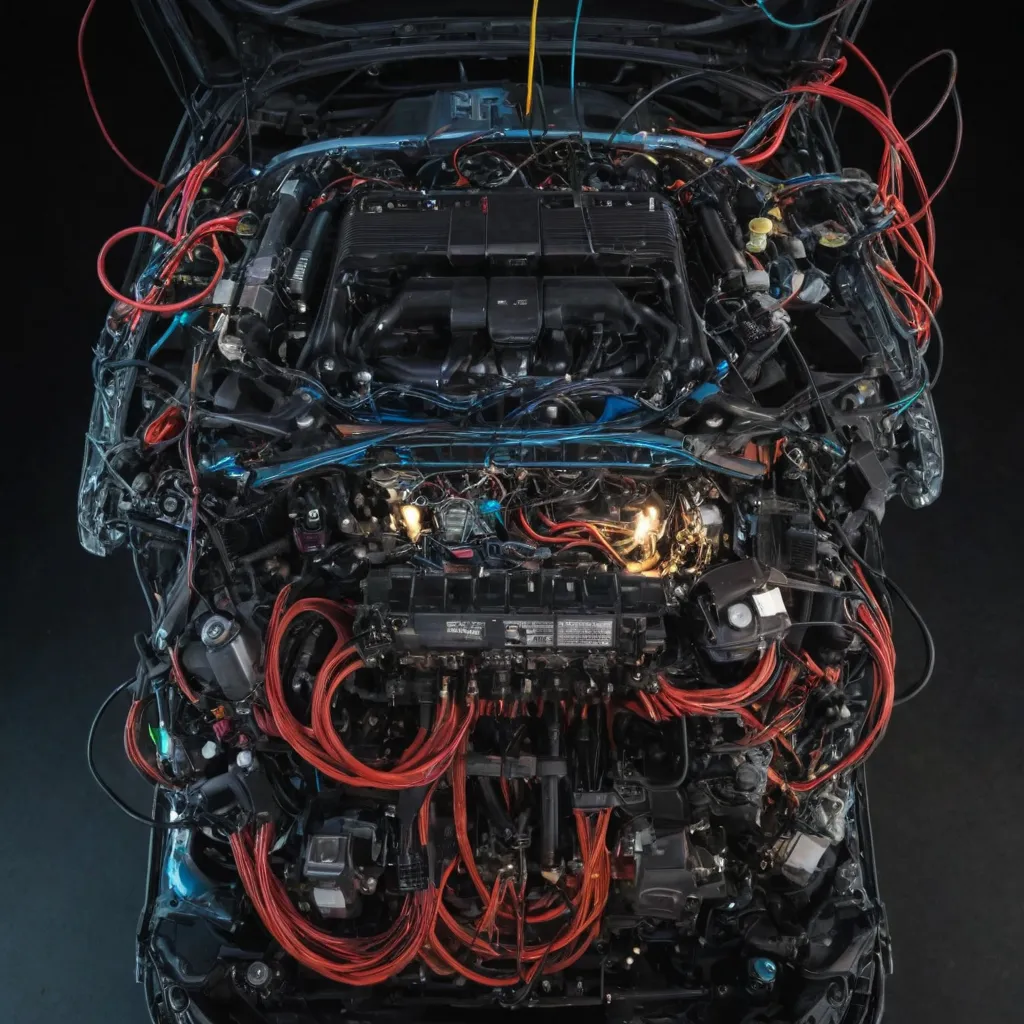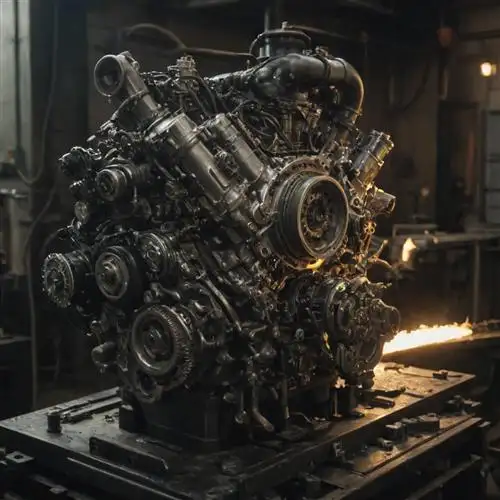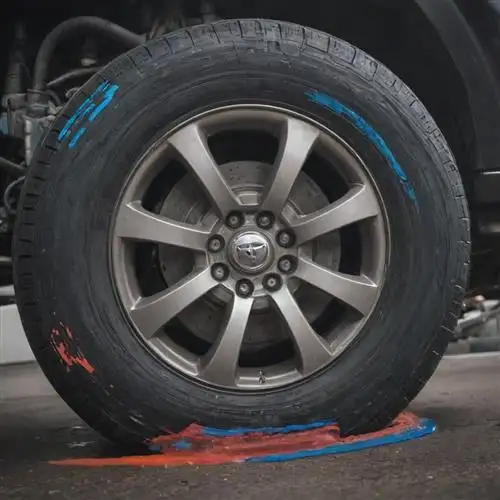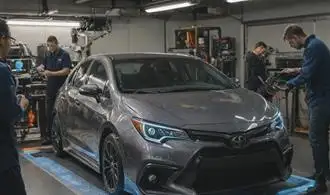
Routine Maintenance Checklist
Owning a Toyota Corolla is a testament to reliability and longevity, but keeping it in top shape requires a diligent maintenance routine. As a professional content writer, I've curated a comprehensive checklist to help you maintain your Corolla and ensure it serves you for years to come.
Regular Oil Changes: The lifeblood of your Corolla's engine, oil must be changed at the manufacturer's recommended intervals. Use the specified oil grade and quantity to prevent premature wear and maximize engine performance.
Tire Rotation and Balancing: Rotating your tires at regular intervals and keeping them balanced helps to extend their lifespan, improve fuel efficiency, and ensure a smooth, comfortable ride.
Brake System Inspection: Check your brake pads, discs, and calipers for wear and tear. Replace any worn components to maintain reliable, responsive braking.
Coolant and Fluid Checks: Monitor the levels and condition of your Corolla's coolant, power steering fluid, transmission fluid, and brake fluid. Top up or replace as needed to prevent costly issues.
Air Filter Replacement: A clogged air filter can reduce engine efficiency and fuel economy. Replace it per the manufacturer's recommendations to ensure optimal airflow and performance.
Wiper Blade Inspection: Worn or cracked wiper blades can impair visibility, especially in inclement weather. Inspect them regularly and replace as needed for clear, streak-free windshield wiping.
Battery and Electrical System Checks: Ensure your Corolla's battery is in good condition and that the electrical system is functioning properly. This includes checking for any warning lights, loose connections, or signs of corrosion.
Suspension and Steering Alignment: Proper alignment of your Corolla's suspension and steering components is crucial for maintaining smooth, precise handling and maximizing tire life.
Oil Changes and Fluid Flushes
Regular oil changes and fluid flushes are essential maintenance tasks for your Toyota Corolla. These proactive measures help preserve the longevity and performance of your vehicle. Let's dive into the importance of these services and explore the best practices to keep your Corolla in optimal condition.
Your Toyota Corolla's engine relies on clean, fresh oil to function efficiently. Over time, the oil breaks down and accumulates contaminants, reducing its ability to lubricate and protect the engine components. Neglecting oil changes can lead to increased friction, wear, and even engine failure. It's recommended to change your Corolla's oil every 5,000 to 7,500 miles, or as specified in your owner's manual. Be sure to use the recommended oil type and weight for your specific model year.
In addition to engine oil, your Toyota Corolla has several other vital fluids that require periodic flushing and replacement. These include:
- Transmission Fluid: Responsible for lubricating and protecting the transmission, transmission fluid should be flushed and replaced every 30,000 to 60,000 miles, or as recommended by the manufacturer.
- Brake Fluid: Ensuring the proper operation of your Corolla's braking system, brake fluid should be flushed every 2 years or 24,000 miles to prevent contamination and maintain optimal performance.
- Coolant/Antifreeze: Crucial for regulating your Corolla's engine temperature, the coolant/antifreeze should be flushed and replaced every 30,000 to 60,000 miles or as specified in the owner's manual.
- Power Steering Fluid: Allowing for smooth and responsive steering, the power steering fluid should be flushed every 30,000 to 60,000 miles.
Tire Rotation and Alignment
Proper tire rotation and alignment are essential for keeping your Toyota Corolla in top condition. By regularly maintaining these critical aspects of your vehicle's maintenance, you can extend the life of your tires, enhance fuel efficiency, and ensure a smooth and safe driving experience.
Your Toyota Corolla's tires are designed to wear evenly, but due to the unique driving conditions and forces acting on each tire, they may wear at different rates. Rotating your tires at the recommended intervals (typically every 5,000 to 8,000 miles) helps to distribute the wear evenly, ensuring that all four tires last as long as possible. This not only saves you money on premature tire replacements but also improves the overall handling and stability of your vehicle.
When rotating your tires, it's essential to follow the manufacturer's guidelines. This may involve switching the front and rear tires, or even cross-rotating them, depending on the specific requirements of your Toyota Corolla model. By adhering to the recommended rotation pattern, you can maximize the lifespan of your tires and maintain optimal performance.
Wheel alignment is another crucial aspect of maintaining your Toyota Corolla. Over time, due to everyday driving conditions, your vehicle's wheels can become misaligned, leading to a range of issues, such as uneven tire wear, poor handling, and even reduced fuel efficiency.
When your Toyota Corolla's wheels are properly aligned, the tires maintain even contact with the road, which optimizes traction and stability. This not only enhances the overall driving experience but also helps to prevent premature tire wear and other problems that can arise from misaligned wheels.
It's recommended to have your Toyota Corolla's wheel alignment checked at least once a year, or whenever you notice any of the following signs:
- Uneven or rapid tire wear
- Steering wheel pulling to one side
- Difficulty keeping your Corolla centered in the lane
- Vibrations or shaking in the steering wheel
By addressing any alignment issues promptly, you can ensure that your Toyota Corolla's tires are wearing evenly and that your vehicle is tracking straight and true, providing a smooth and responsive driving experience.
Brakes and Brake Maintenance
Maintaining the brakes on your Toyota Corolla is crucial for ensuring your safety and the longevity of your vehicle. Properly caring for your brakes can not only extend their lifespan but also improve your car's overall performance and handling. In this section, we'll explore the importance of brake maintenance and provide practical tips to keep your Corolla's brakes in top condition.
Regular Brake Inspections: It's recommended to have your Toyota Corolla's brakes inspected at least once a year or every 12,000 miles, whichever comes first. A professional mechanic can examine the brake pads, discs, and calipers, and identify any potential issues before they become more serious problems.
Brake Pad Replacement: The brake pads on your Toyota Corolla are designed to wear down over time, and they will need to be replaced periodically. Typical brake pad life can range from 30,000 to 70,000 miles, depending on your driving habits and the environment in which you operate your vehicle. Pay attention to any noticeable changes in brake performance, such as increased pedal travel or a grinding noise, as these may indicate the need for new brake pads.
Brake Disc Resurfacing or Replacement: In addition to the brake pads, the brake discs (also known as rotors) on your Toyota Corolla can also wear down over time. If the discs become excessively worn or warped, they may need to be resurfaced or replaced. This process involves removing the old discs and either machining them to restore their smooth surface or replacing them with new ones.
Brake Fluid Maintenance: The brake fluid in your Toyota Corolla plays a crucial role in the proper functioning of your braking system. Over time, the brake fluid can become contaminated or lose its effectiveness, which can compromise the overall performance of your brakes. It's recommended to have your brake fluid flushed and replaced every 30,000 miles or according to the manufacturer's recommendations.
Caliper Maintenance: The calipers in your Toyota Corolla's braking system are responsible for applying the necessary pressure to the brake pads, allowing them to grip the discs and slow or stop the vehicle. Calipers can become stuck or seized, which can lead to uneven brake pad wear or even complete brake failure. Regularly inspecting and maintaining the calipers can help prevent these issues.
Brake System Bleeding: If you ever need to replace a brake component or if air gets into the brake lines, you may need to bleed the brake system. This process involves removing any air bubbles from the brake fluid, ensuring the brakes respond properly and providing a firm, consistent pedal feel.
Electrical System Checkups
Maintaining the electrical system of your Toyota Corolla is crucial to ensuring its longevity and optimal performance. Regular checkups and proactive maintenance can help you avoid costly repairs and keep your vehicle running smoothly. Let's dive into the essential aspects of your Corolla's electrical system that you should pay attention to.
One of the primary components to monitor is the battery. Over time, your Corolla's battery can lose its charge or even fail, leaving you stranded. It's recommended to have your battery tested annually to ensure it's still in good condition and capable of holding a charge. If it's time for a replacement, be sure to choose a high-quality battery that is specifically designed for your Corolla's make and model.
Another important aspect of the electrical system is the alternator. The alternator is responsible for charging the battery and powering the various electrical components in your vehicle. If the alternator is not functioning correctly, it can lead to a dead battery and other electrical issues. During your regular maintenance checks, have your mechanic inspect the alternator and ensure it's providing the proper voltage output.
The wiring harness is another critical component that deserves attention. Over time, the wiring in your Corolla can become frayed, damaged, or corroded, leading to electrical gremlins and potential safety hazards. Regularly inspect the wiring harness for any signs of wear or damage, and address any issues promptly. If you notice any flickering lights, erratic behavior in your Corolla's electrical components, or other electrical problems, it's best to have a professional technician diagnose and address the issue.
In addition to the battery, alternator, and wiring harness, your Corolla's electrical system also includes fuses and relays. These components play a vital role in protecting your vehicle's electrical circuits from damage and overloads. Be sure to familiarize yourself with the location and function of the fuse box and replace any blown fuses with the appropriate ones. Regularly checking and maintaining these components can help prevent electrical failures and ensure the smooth operation of your Corolla.
















